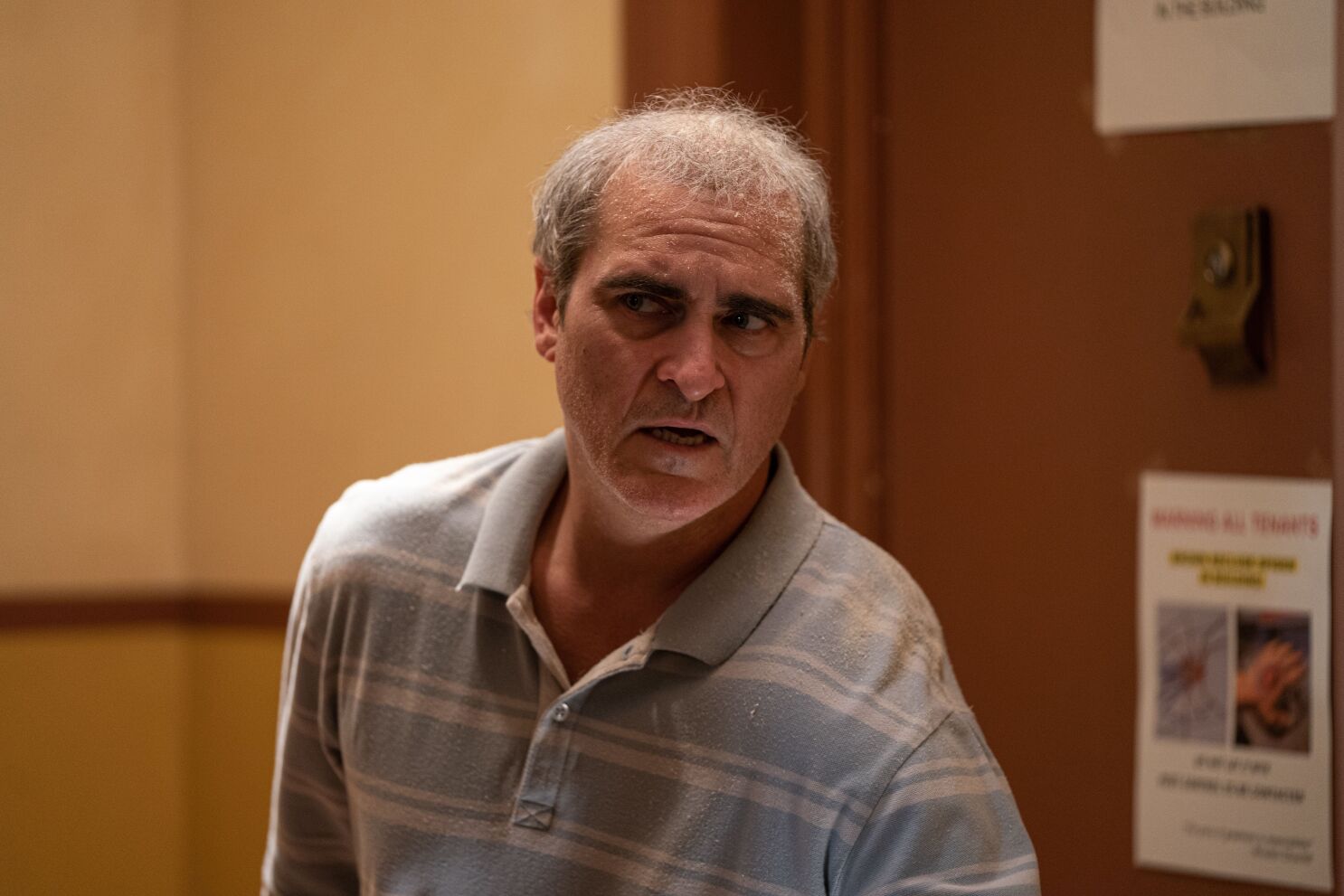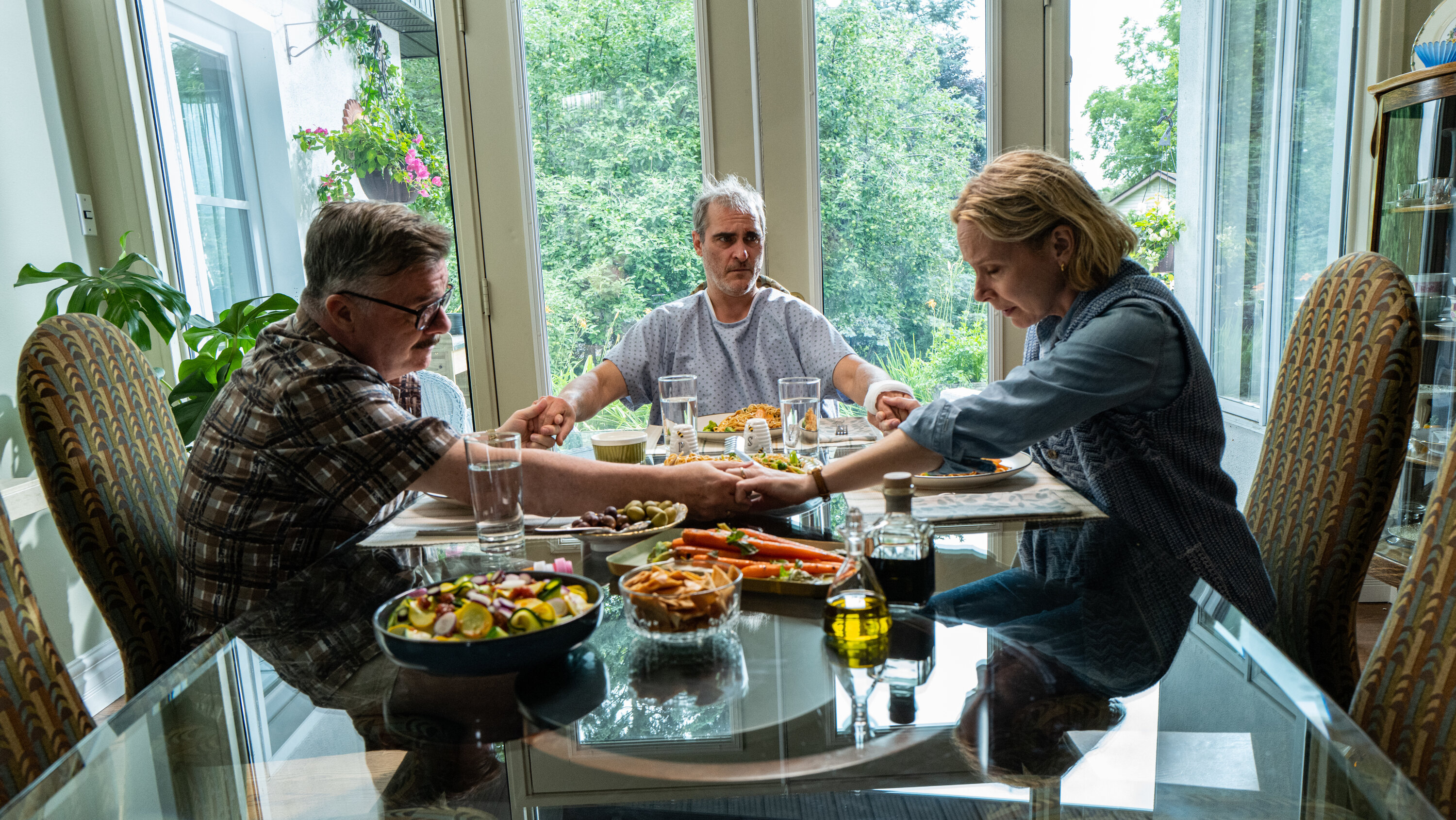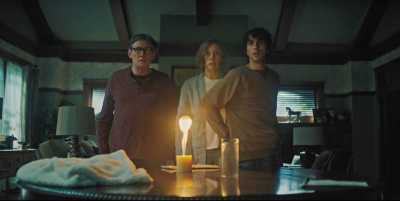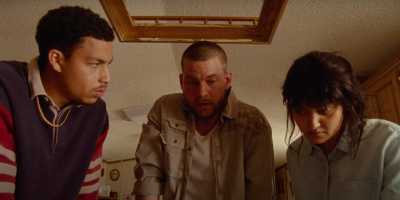The Beau Who Cried Wolf




In what was a mild case of cinematic masochism, I chose to spend a pair of weekend nights back in April revisiting Ari Aster's two previous films, Hereditary and Midsommar. Upon reflection, I had to seriously reconsider the ways I choose to spend my recreational time unwinding from life and all its stressors. Afterward, I shared some of my retrospective feelings -- here's what I wrote after rewatching Hereditary; and here's what I wrote after rewatching Midsommar. This was a great way to prepare for Aster's third and widely anticipated feature film, Beau Is Afraid, which is co-produced and distributed by A24 (the independent studio behind Aster's other two films). I eventually went and saw Beau shortly after it premiered. After having some time to marinate a bit longer, I'm as ready as I'll ever be in trying to assess what the hell is going on in what might be one of the most mind-boggling filmgoing experiences I've had in recent memory.
Film
Following the sudden death of his mother, a mild-mannered but anxiety-ridden man confronts his darkest fears as he embarks on an epic, Kafkaesque odyssey back home.
Spoilers aplenty
Beau Wassermann is afraid, this much is true. He's an emotionally- and sexually-stunted, middle-aged man who struggles with chronic anxiety and lives in a constant state of fear and doubt. He is easily overwhelmed by his environment and relies on anxiolytic medication for fleeting moments of sedative relief. His lack of self-confidence is matched only by his crippling paranoia, and it seems he has little external interaction other than meeting with his therapist. Beau is surviving-not-thriving, and his own inner turmoil is amplified by the unforgiving world around him. As seen through his eyes, the outside world isn't just intimidating, it's downright menacing. Beau seems to live on a particularly violent block of a crime-ridden city, where anarchic murderers and rapists run rampant and deranged homeless people heckle him tirelessly. His apartment building is rundown (to put it nicely) and is infested with killer spiders; his neighbors are as threatening as they are untrustworthy. Unfortunately for Beau, the deck seems stacked against him at every turn. Why is everything around him so frightening? Why can he never seem to catch a break? Why is it that the joke always seems to be at his expense? Beau's survival is dependent on the unlikely chance he has of finding any sense of security and control amidst the uncontrollable dread engulfing him. He might be hopeless, and he is certainly alone.
The notion of 'Beau being afraid' is more than just the working title and de facto premise of this surrealist black comedy horror film -- it's the conceptual kernel at the center of this subversive Freudian Odyssey. With Beau Is Afraid, Ari Aster has delivered a divisive 3-hour dissertation on deep-rooted mommy issues and the repercussions of repressed intimacy, where bleak tragedy morphs into dark hilarity and unchecked absurdity is the only established axiom. This is an unironically satirical and intensely provocative film designed to challenge its audience (which I imagine will be a small but dedicated bunch) in more ways than one: the runtime is a marathon, even though it often feels like a sprint; the story structure, with its unexpected twists and turns, is purposely uneven; and through its reckoning with themes of grief, guilt, and genetics, the subtext is anything but subtle. There are more than enough philosophically-dense undertones and oedipal overtones to keep even the shrewdest psychoanalytical viewers on their toes; there's no shortage of seat-squirming cringe and backhanded jokes to entertain the most cynical comedian.
What Beau (Joaquin Phoenix) doesn't realize is that his entire life is about to spiral out of control and any sense of personal security that he has will soon be lost. As he prepares to catch a flight to follow through on a long-overdue visit with his mother, a trip that intentionally coincides with his parent's wedding anniversary (and consequently, his father's death, which occurred mid-orgasm in which Beau was conceived), everything starts to go heinously wrong. One thing after another prevents Beau from catching his flight -- and when he calls his mother, Mona (Patti LuPone), she fails to let him off the hook and then generously pours on the guilt. In his gloom, Beau takes his new medication, an experimental drug prescribed by his therapist (Stephen McKinley Henderson), which can only be taken with water -- but of course, his panic only spikes more when he finds out there's a water outage. For the next ten minutes, Beau has to run across the street from his apartment to a convenience store for a bottle of water -- and meanwhile, every conceivable thing that could possibly go wrong starts to go wrong. Amidst all this chaos, Beau is in complete hysterics and seems none the wiser to the strangeness of his circumstances. This will more or less be the case for the entirety of the film.
It isn't until Beau receives a fateful phone call that his mother has apparently died that the action of the movie really starts to take get in motion. In his Odyssey, Beau passes through a myriad of faint memories, vivid daydreams, and dark realities. And at every turn, he is triggered and begins wrestling with the central source of conflict: the relationship he has with his mother, Mona. She has tortured Beau and exerted manipulative control over him by way of hand-me-down trauma and incessant guilt-tripping. Her influence over him has corrupted him as a functioning adult and as a man -- her shadow looms large, even in death. But she isn't the only character Beau encounters on his journey. At various checkpoints, he passes through the lives of many interesting, hard-to-get-a-feel-for characters: there's Grace and Roger (Amy Ryan & Nathan Lane) a married couple, their daughter, Toni (Kylie Rogers), and Jeeves (Denis Ménochet), an army comrade of their deceased son whom they're caring for; there's the group of traveling theatre actors, "The Orphans of the Forest," whose performance helps transport Beau to an imaginative world that sets up the beautiful and moving animated section of the film created by Cristobal León & Joaquín Cociña; there's Elaine Bray (Parker Posey), who is Beau's teenage love interest, the girl he promised to keep his virginity for until they meet again; and there's Doctor Cohen (Richard Kind), who plays a critical role in the film's final scene. Every scene is populated by an odd assemblage of eclectic acting talent that coalesces into a whole that is greater than the sum of its individual parts.
But what's really going on story-wise? To fully invest in this story, suspending one's disbelief and understanding that the film operates according to its own rules and logic is key. Beau Is Afraid is an example of solipsistic storytelling gone sideways -- there is an uncertain and illogical validity to the way in which events play out and memories are retold in the vacuum of Beau's purview, which is no doubt a result of his emotionally fractured psyche. It is almost immediately evident that there is a surrealist implausibility undercutting Beau's perception of the world around him. While it is never deliberately addressed, something is off and things may not be exactly as they seem on screen. While the audience seems to have an inherent understanding of this peculiarity, Beau does not. He accepts the reality at face value -- much like Jim Carrey's Truman Burbank in first-half of The Truman Show -- except in these circumstances, Beau doesn't live in a carefully crafted Utopia designed to keep him blissfully ignorant; instead, Beau is at the threshold of his own personal hellscape. Or is he really? Is the nightmarish world Beau operates within only a construct of his own mind or is it a true and objective state of reality for the world at large? These questions are left more or less ambiguous, and Aster leaves it up to the viewer to decide what has actually happened. The end result is better because of his decisive caginess.
Despite all the gags, red herrings, and convoluted thematic motifs infused into the storytelling, Aster plays everything exceptionally straight and manages to keep everything strung together with an unshakeable sincerity. And he knows better than to show his hand -- this is a committed bit of satire that never dares wink at the camera out of fear of unraveling entirely. Though Beau certainly sees himself as the victim in his own story, viewers are left to deal with all this metaphysical uncertainty. Is Beau a trustworthy point-of-view character? As things go along, the importance of answering that question and assessing the nature of Beau's reality begins to fade. Slowly but surely, as Beau's world begins to deconstruct around him, viewers may start to realize that they're not only allowed to laugh at the insanity of Beau's circumstances -- they're actually being encouraged to laugh. Aster invites the audience along for this ride and encourages them to laugh along through Beau's misery and find the dark comedy lurking on the fringes of every frame. In refusing to directly address the validity of Beau's perception and instead pushing ahead into greater absurdities, it's understood that Aster is more interested in laughing with Beau rather than at him. Beau isn't really a punchline, he just always plays the part of one -- and though he seems to think the joke is always at his expense, it becomes clear to the audience that Beau might just be the only one who is not in on the joke. It's a cruel and unusual bit of warped humor that some might find fruitless, exhausting, or in bad taste -- others may see this exercise as commentary on what low self-esteem and all-consuming guilt can do to a person. Ultimately, your takeaways may say more about you than the film has to say about Beau.
And just when you're about ready to suspend all belief and laugh away, Aster is quick to pull the rug out. Almost every comedic sequence is sprinkled with a dash of horror (or vice versa), and any rhyme or reason behind a given tonal shift is understood as the byproduct of something being altered within Beau's perception. In his pain, nothing isn't real for Beau, and his experiences as a traumatized victim are justified, even if the details are complicated and void of logical reasoning. More so than ever before, Aster has his audience strung up like a yo-yo, and the film goes up and down according to his chaotic string-pulling.
Strong screenwriting and diligent direction are just the tip of the iceberg. As I mentioned previously, the casting and performances from top-to-bottom are top-notch, especially Zoe Lister-Jones' performance as young Mona (she takes over the movie in what is one of the most haunting sequences of the film), and of course, Joaquin Phoenix's performance as Beau. In case you needed more proof, he is one of the most fearless and malleable actors working today, someone who always jumps headfirst into the deep end. I'm always fascinated by his bold choices and risk-taking, and in Aster he seems to have found a new partner in crime, considering some recent rumors that have been spreading. Moreover, the below-the-line craft is worth applauding: Lucian Johnston's editing, Pawel Pogorzelski's cinematography, and Bobby Krlic's scoring are extremely effective means for helping to sell what Aster is trying to pull off. Everything blends nicely and is altogether additive, though not distracting or over-stylized.
When it comes to explaining the mechanics of Beau's reality or the in-depth interpretation of the film's themes, I'll leave that business for more qualified minds. You don't really want to hear my hacky analysis of what happened in the attic with the Phallic Jabba the Hutt or my half-baked takeaways from the lingering final shot of the film. Keeping things close to the chest is his modus operandi, and unpacking Aster's intentionality here feels futile and all but impossible. While I'm confident that every intricate layer and hidden nuance will reveal themselves upon every rewatch, I'd carry around more guilt than Beau if I were to spoil anyone's first-time viewing. The more left unsaid, the better.
I would not label this as something for everyone -- this might be a film that more people will begrudgingly respect rather than genuinely enjoy. There might be a tinge of too much angst, despair, and paranoia for some viewers to get past. And films that ask more questions than answers can often be frustrating -- terms like esoteric, pretentious, and off-putting start to mean the same thing for movies like this. Seeking greater truths hidden in plain sight is sometimes an unwelcome challenge when sitting down to watch a movie; other times, it can be therapeutic or eye-opening. But the technique and execution of vision here are undeniable. The dichotomy between humor and horror in Beau is fickle and fluid, and Aster manages to lull his audience with his off-beat humor, only to pull the rug out from under them time and time again. For me, this mode of extremism wasn't a barrier to entry -- it was a welcome invitation. I found myself laughing and crying, sometimes at the same time, and sometimes for reasons unknown. I'd say that's a unique feat for any film. As a coping mechanism, it seems laughter remains undefeated and is still the best medicine when trying to relieve stress. And maybe this is just another case of when all else fails, dig deep and search for a joke when you're in need of a silver lining. It may be our only path forward.
Froth
Off Color Brewing makes... well, off-color beer. Farmhouse ales, witbier, fruit beer -- hell, even their American Ale has to be wild! Knowing that I was sitting down for an Ari Aster film that would probably cause me to rethink my entire life over the course of three hours, I decided to get a pour of Apex Predator, which is perhaps Off Color's flagship beer. It's cloudy, foamy, and malty. It's a beer that tests your nose and challenges your palate. The flavor is unique enough to convince you it's something you've never tried before, but really, the taste is reminiscent of something you've sipped one hundred times over. I'm convinced there was no better beer to sip while watching Beau work through years of childhood trauma and teeter on the verge of a psychotic break.
Apex Predator
Saison | 6.5% ABV
Off Color Brewing
@offcolorbrewing











